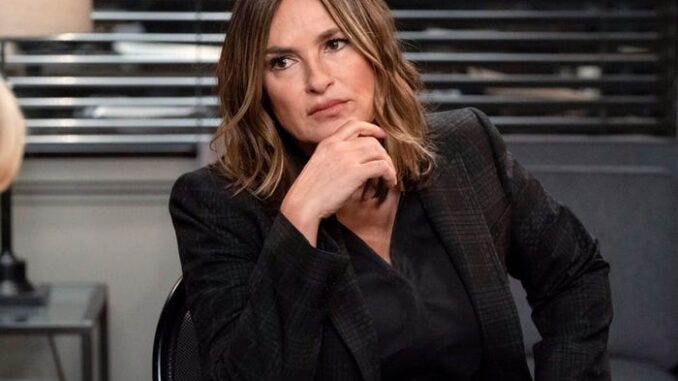
The Enduring Echo: Mariska Hargitay Reflects on 25 Years of Playing Olivia Benson
Twenty-five years. A quarter-century. In the ephemeral world of television, where shows burn bright and fade fast, such a milestone for a single character, portrayed by the same actress, is not merely remarkable – it is a cultural phenomenon. Mariska Hargitay, as Captain Olivia Benson of Law & Order: Special Victims Unit, embodies this singular achievement, and her reflections on this unprecedented tenure are not just professional anecdotes, but a profound meditation on identity, advocacy, and the indelible mark a character can leave on an actor, and indeed, on the world.
To speak of Hargitay and Benson is to acknowledge a rare, almost symbiotic relationship. It’s no longer a matter of an actress playing a role; it’s an entwining of souls. Benson, initially a sharp-edged, ambitious detective, has evolved alongside Hargitay, transforming into a beacon of empathetic authority, a surrogate mother figure, and a relentless champion for the voiceless. Hargitay often speaks of the role as a "gift" and a "burden" – a testament to the visceral emotional toll and the profound sense of purpose it has instilled. When she reflects on those early days, one can almost picture her, a younger woman stepping into the shoes of a character whose future impact she couldn't possibly fathom, now looking back with the wisdom of thousands of hours spent in Benson’s skin, traversing the darkest corridors of human depravity and resilience.
This journey is illustrative in how it blurs the lines between art and life. Benson's experiences, the relentless parade of trauma, assault, and abuse, have undeniably shaped Hargitay's own worldview. Her creation of the Joyful Heart Foundation, dedicated to supporting survivors of sexual assault, domestic violence, and child abuse, is not merely an actor's side project; it is a direct, heartfelt outgrowth of her character's mission. Hargitay doesn't just play an advocate on screen; she is one off-screen, embodying Benson's spirit of unwavering compassion and action. Her reflections reveal a woman who understands that the platform SVU has given her is a sacred trust, a megaphone for issues that often remain shrouded in shame and silence.
When Hargitay speaks of the longevity, one senses a mix of awe, gratitude, and a quiet sense of responsibility. She’s witnessed the evolution of societal conversations around sexual violence, gender equality, and victim's rights through the lens of her character. Benson has been a constant, a north star for viewers grappling with the harsh realities the show unflinchingly portrays. The show’s ability to adapt, to integrate contemporary issues like #MeToo, consent culture, and the complexities of the justice system, is reflected in Benson's own growth – from a reactive detective to a proactive leader, from a lone wolf to the head of a dedicated squad. Hargitay's reflections underscore this: the show isn't just entertainment; it's a mirror held up to society, evolving as society itself evolves.
In her twenty-fifth year, Hargitay’s portrayal of Olivia Benson is less about acting and more about channeling a collective empathy. It's an illustrative essay on the power of consistency, the weight of a sustained narrative, and the profound impact of a character who has become synonymous with justice and healing for a generation of viewers. Her reflections are not just about a career well-spent, but about a life indelibly marked by the character she brought to life, and in turn, how that character, through Hargitay’s dedication, has left an enduring echo in the hearts and minds of millions. Olivia Benson, through Mariska Hargitay, has become more than a character; she is an institution, a symbol, and a testament to the profound and lasting power of storytelling.
